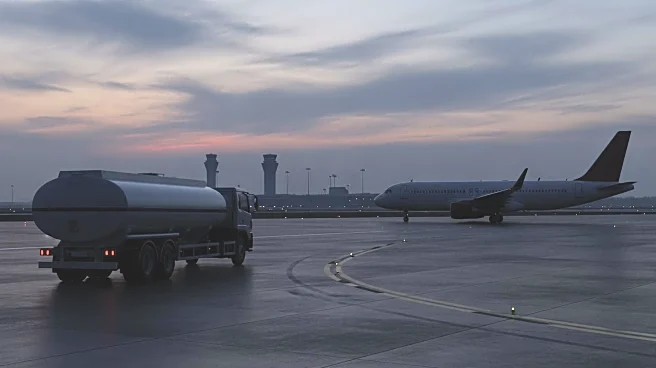What's Happening?
Over 300 South Korean workers detained in a U.S. immigration raid at a Hyundai-LG battery plant in Georgia have returned home. The raid, which occurred on September 4, led to the detention of 475 individuals, including South Koreans, Chinese, Japanese, and Indonesian workers. The workers were held at an immigration detention center in Folkston, Georgia, before being flown back to South Korea. The incident has sparked public outrage in South Korea, a key U.S. ally, due to the treatment of the workers, some of whom were shackled during detention. South Korean officials have negotiated their release and are calling for changes in U.S. visa systems to better accommodate skilled workers.
Why It's Important?
The raid and subsequent detention of South Korean workers have strained diplomatic relations between the U.S. and South Korea, highlighting issues in the U.S. immigration system. It underscores the need for improved visa processes to facilitate international business operations and protect foreign workers' rights. The incident may impact future investments by South Korean companies in the U.S., as concerns over worker treatment and visa challenges could deter further economic collaboration. The situation also reflects broader tensions in immigration policy under the Trump administration, affecting international perceptions of U.S. immigration enforcement.
What's Next?
South Korea and the U.S. have agreed to establish a bilateral working group to create a new visa category for skilled workers, aiming to prevent similar incidents in the future. South Korean companies may reassess their investment strategies in the U.S., considering the implications of the raid. The issue may prompt discussions on immigration policy reform, focusing on balancing enforcement with international business needs. Stakeholders, including business leaders and policymakers, will likely engage in negotiations to ensure smoother operations and protect workers' rights.









